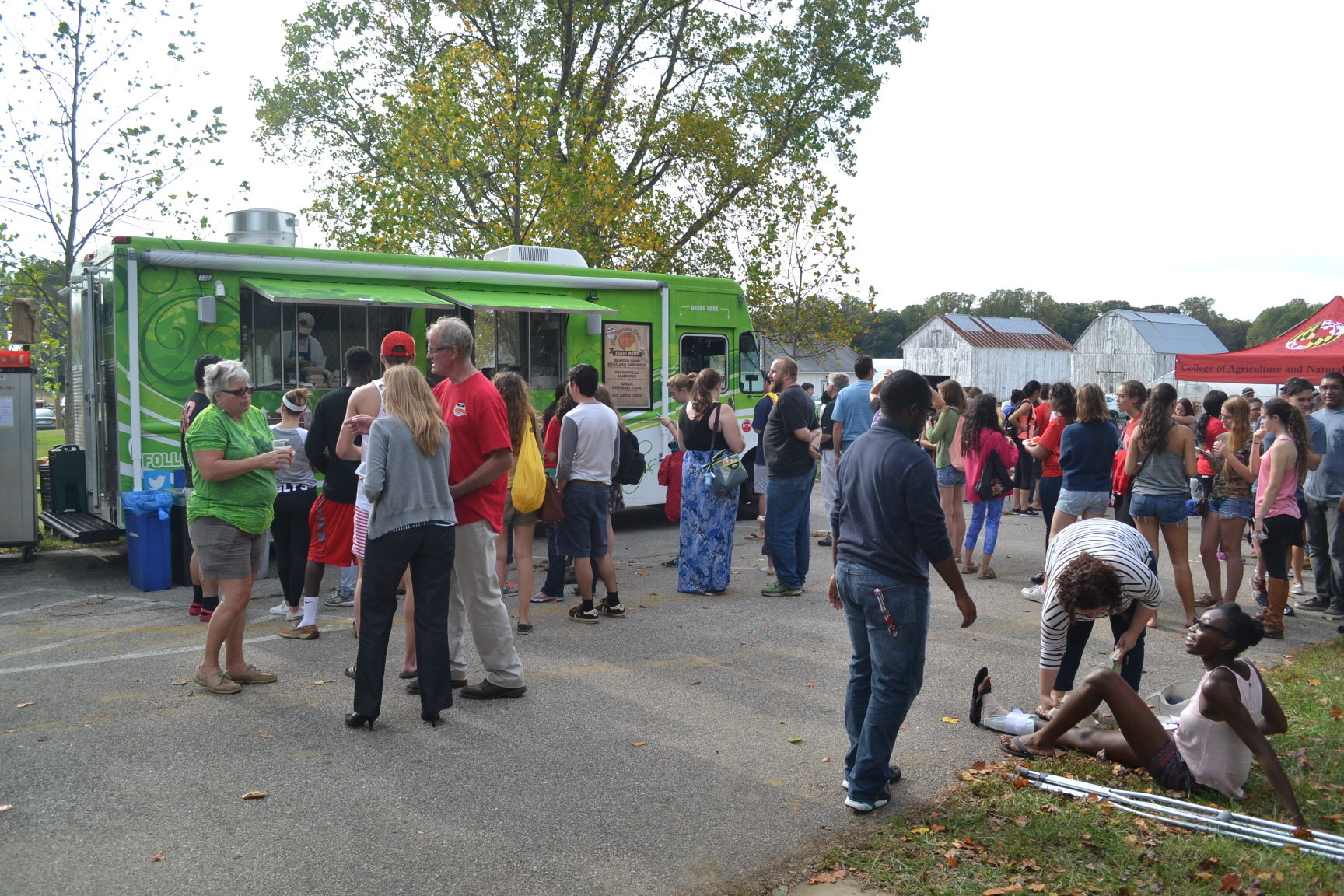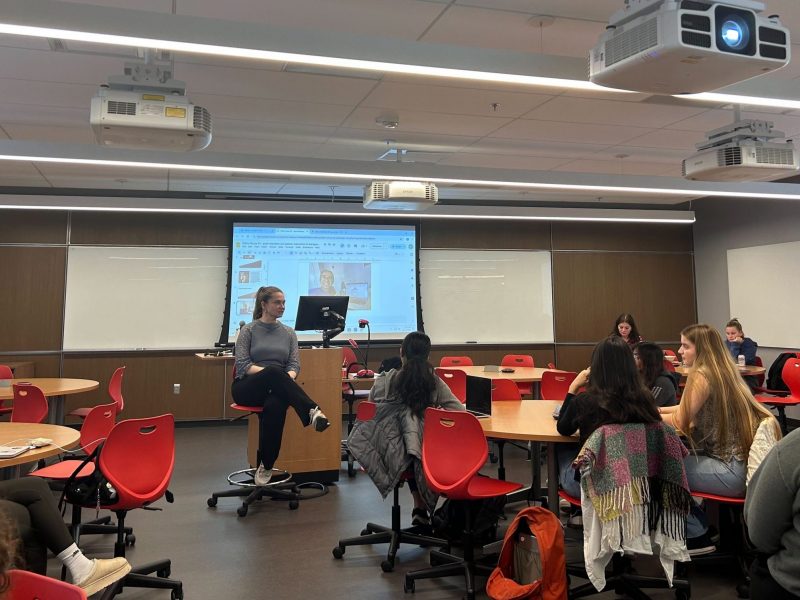
The University of Maryland Green Tidings food truck serves food to guests at the Terp Farm Harvest Festival on Friday, Oct. 9, in Upper Marlboro.
The Prince George’s County Council passed legislation earlier this month that would allow food trucks to operate in this county.
The county has not allowed food trucks in the past, except for at festivals and fairs. Food trucks benefit underserved areas of the county while promoting entrepreneurship and more food options for residents, said District 3 County Councilwoman Dannielle Glaros, who co-sponsored the legislation.
“My hope is that we are going to see these blossom in a lot of different places and people are going to have an incredibly positive experience across the county, like people are across the country with food trucks,” she said.
The county will approve licenses for 12 hubs, which is what the council is calling the locations food trucks can operate, in the first year. Glaros said University of Maryland and city officials have expressed interest in having a hub near the College Park Metro Station or where Little Tavern previously stood on Route 1.
READ MORE: College Park officials demolish former Little Tavern building on Route 1
“Particularly around the College Park Metro Station, where we have a lot of office employees,” she said. “It can really show the type of community that can exist over by the Metro station.”
Once passed by the council, legislation takes 45 days to be enacted. While the legislation will be enacted in mid-November, Glaros said council members expect food trucks to be operating by the beginning of 2016.
Glaros said they are taking the process slowly because of problems with illegal food trucks in surrounding areas in years past. They have partnered with the Prince George’s County Revenue Authority to tighten enforcement procedures, she said.
The hubs must be on the “open area or parking lot or public rights-of-way of the following: parks and recreational facilities under the operation and control of the Maryland-National Capital Park and Planning Commission, or areas within a one-quarter mile radius of the station entrance of any Metro and MARC stations,” according to the legislation.
READ MORE: Nando’s Peri-Peri to donate opening sales to UMD’s Campus Pantry
The county is stressing the improvement of amenities around the areas of Metro stations because the employees have few food options, Glaros said.
“We are predominately focused on Metro stations, because we really wanted places where we already have a decent amount of office employees,” she said. “We have a lot of employees, and they want some options. They want to be able to go out and grab a bite to eat a few times a week, not just sit at their desk.”
Three hubs have already been reserved for locations near Metro stations at Naylor Road, Suitland and New Carrollton, according to the legislation.
District 3 Councilman Robert Day, a former food truck operator, said he is a “huge fan of it” and the Little Tavern location would be “ideal.”
“It would be great to have an environment where people can be outside instead of being forced to go to the very few restaurants we have,” he said. “If they rotate the food trucks on a regular basis, you will create a following, and that is a great for the city.”
Eric Olson, the executive director of the College Park City-University Partnership, echoed Day’s thoughts and said food trucks could help develop that corner of town.
“It is right downtown,” he said. “It is right between the university and the city. We want more people downtown. We want people enjoying the downtown area.”



